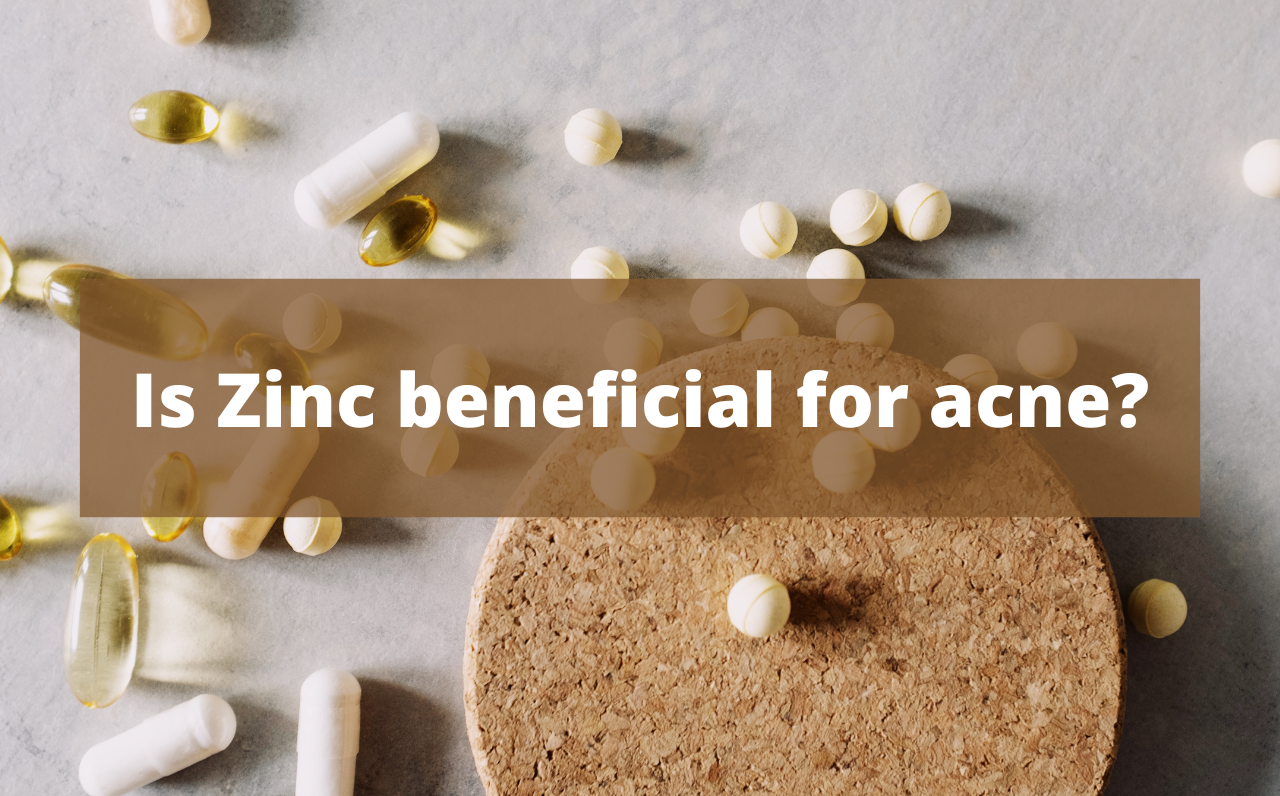Is Zinc beneficial for acne?
Is Zinc beneficial for acne?
Are you wondering whether Zinc can help acne? Minerals are essential to function in your body correctly, and Zinc is one of them. The mineral zinc is very common in the body and plays a vital role in many essential processes. You are protected from acne-causing bacteria and harmful cells by Zinc.
Even though acne comes in many forms, acne on the skin's surface is the most common. The most common time people suffer from acne is during puberty, but it can occur at any time.
This article aims to explain how Zinc can be used to treat acne? Zinc's risks and benefits will also be discussed. If you want to know How Effective Is Tea Tree Oil for Acne you acne read this blog.
Acne symptoms
The reason for acne is excessive sebum production by the skin, which results in acne.
The following symptoms characterize acne:
Blackheads: Blemishes on the face that are dark in color.
Whiteheads: Tiny white bumps appear on the skin's surface.
Papules: Skin bumps that are red in color.
Pustules: Red, pus-filled bumps.
Nodules: Large lumps beneath the skin.
Acne and Zinc
Zinc performs several vital functions within the body among the essential minerals. The following are a few of them:
Acne can be treated with Zinc.
A child's and an adolescent's growth
Wounds that need healing
A process that activates enzymes
The immune system functions
cell division
A process in which proteins and DNA are synthesized
It is possible to treat acne with medications that contain Zinc. It is possible to take them orally, or you can apply them topically. A zinc supplement or modification of the diet can also add Zinc to the diet.
Medications applied topically
There are three main types of topical treatments: pastes, gels, and creams. These products can be used to treat acne-affected areas of the skin.
Among the topical medications that contain Zinc are:
zinc sulfate
zinc octoate
zinc acetate
Oral medications
A large area of the skin or a hard-to-reach part of the body can be affected by acne. It may not be feasible to treat such conditions with topical treatments in such a situation.
Injections are much more difficult to administer than oral medications. Patients usually receive oral medications such as tablets or capsules.
Oral medications containing Zinc include:
zinc sulfate
zinc salts
zinc gluconate
Changes in diet
Zinc intake can be increased through dietary changes. Zinc can be found in a variety of foods, including:
Beans
Nuts
Red meat and poultry
A milk-based product
Breakfast grains and cereals fortified with vitamins
A few seafood items, such as lobster,
When taken from animal sources, Zinc is more accessible to absorb than when taken from plant sources. Zinc absorption is inhibited by substances called phytates found in some plants and grains.
To increase your zinc intake, you can also take dietary supplements. Zinc can be found in several dietary supplements as a multivitamin and in others as a standalone supplement.
Zinc's advantages and disadvantages
Acne can be effectively treated with zinc-based medications. In a recent study, researchers found that zinc gluconate taken orally can reduce acne symptoms when taken orally.
In higher doses, Zinc's toxicity can make overdosing harmful. There are several symptoms associated with zinc toxicity, including:
muscle cramps
Vomiting blood, or hematemesis
nausea
vomiting
diarrhea
abdominal pain
Zinc-based topical treatments are not recommended for people with sensitive skin.
Summary
It has been suggested that Zinc can be used to treat acne in some studies. There are some risks associated with such treatments, unfortunately.
If you intend to use zinc-based medications or increase your intake of zinc, you should consult your healthcare provider first.




Comments
Post a Comment